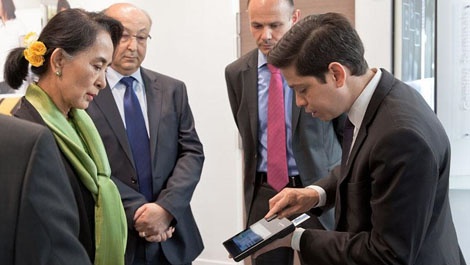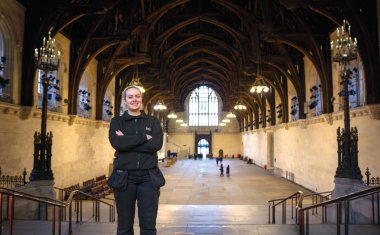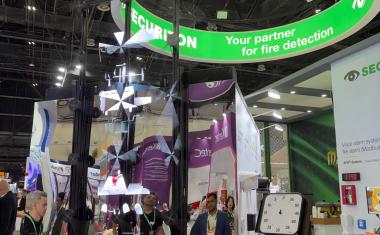Nobel Peace Prize winner Aung San Suu Kyi visits Morpho
On her recent visit to France in April, Aung San Suu Kyi, the Burmese member of Parliament and Nobel Peace Prize winner, came to Morpho to discover how biometrics could contribute ...

On her recent visit to France in April, Aung San Suu Kyi, the Burmese member of Parliament and Nobel Peace Prize winner, came to Morpho to discover how biometrics could contribute to the success of an election. Olivier Lafaye, Morpho's Director of International Development, reflects on the societal and social dimension of this technology.
What were the reasons that prompted Aung San Suu Kyi to visit Morpho?
The purpose of Aung San Suu Kyi's visit was to gain a better understanding of democratic processes in France. Next year, presidential elections are to take place in her country: she is currently in talks with the generals in power to make these as transparent as possible. For elections to be successful, the electoral base must be known and each of the voters given an identity. Today, the best way to achieve this is the use of a database, safeguarded by biometrics. So we presented her our know-how in this area, using the examples of Mali, Ivory Coast and Kenya - countries where elections were able to take place without disputes over electoral lists. Very much in tune with the times, Aung San Suu Kyi showed a real interest in our solutions and asked specific questions. It is worth noting that we are the only manufacturers with whom she chose to meet during her two-day visit.
Biometrics serving democracy, isn't that an oxymoron?
It's a paradigm shift: biometrics will allow countries access to more freedom! Certainly, this technology must be used within a legal framework, so that the citizen may know who is responsible for the files and how they are used. In many countries, elections are a recent phenomenon. The political system is not as mature as that of western countries, and census is fragmented. Technology will allow the citizen to be involved in the democratic process, and to exercise his or her rights with dignity and without constraint. This is undoubtedly a step forward.
Do biometrics bring wider benefits to our societies than this support of democracy?
The use of biometrics is a new era in the social and economic development of our world. For example, in the AADHAAR program in India, our mission is to attribute a unique identification number to each person. Using this number, the people may now be recognized and will be able to access both social and health care services more easily. Biometrics restores their human dignity.
Another benefit: biometrics applied to mobility. The passports we provide to Chilean citizens will now allow them to travel to the United States without a visa.
Final dimension: the economic aspect. Since the Brazilian bank, Banco Itaú entered into an important partnership with Morpho to introduce biometric identification solutions into its processes, fraud has been wiped out. Once again, biometrics acts as the guarantor of a person's identity, allowing him or her to trade goods freely and securely.
In Europe, where identity theft is a growing phenomenon, it is likely that the development of these technologies will accelerate in the coming years. Biometrics will then function as a comfort, as a facilitator; replacing, for example, the many pass codes we have to memorize, as is currently the case with some smartphones.













